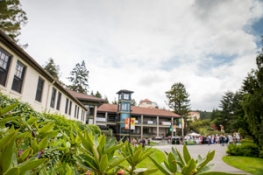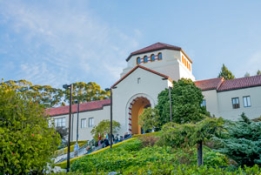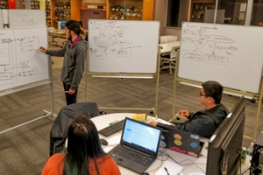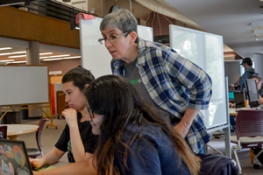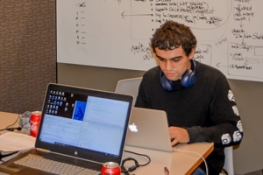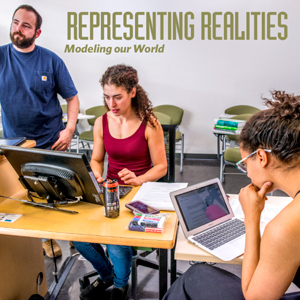Software Engineering, B.S.
Software Engineering is a field that applies engineering concepts to software development. It encompasses the development, operation and maintenance of programs.
Why This Program?
Hands-on Learning
Our bachelor’s of science degree program emphasizes practical experiences so students can apply what they have learned in the classroom to real-world topics with a focus on sustainability, equity, and justice.
For example, as a freshman majoring in Software Engineering, you, along with Math, Software Engineering, Data Science, and Geospatial Analysis majors, will automatically be part of our Place-Based Learning Community called Representing Realities. This year-long program immerses you in the world of mathematical and computational modeling, while helping build connections with students who are as passionate about modeling the world around us as you.
The ethical component of the program is designed to explore what is ethical and moral and good for society. In fact, students will explore different case studies. For instance, a radiation machine designed to help cancer patients in real life wasn’t adequately tested. As a result, patients received more radiation than necessary.
Career Preparation
In the fast-growing field of software engineering, graduates are qualified to pursue highly paid careers in software development. Graduates may also have opportunities to work on projects related to embedded software, which is used in virtually every industry, from medicine to aeronautics.
Getting Involved
The Computer Science Club gives Computer Science and Software Engineering majors a chance to meet and collaborate with other CS students. It’s a welcoming atmosphere for everyone while creating engaging events to help spread the wonders of technology to the community.
Computer Science and Software Engineering students have the opportunity to tackle a wide variety of real world issues, through events, collaborations, internships, summer research experiences, and partnerships.
The Hackathon is about solving difficult problems with a unique, effective and elegant solution. Every year, Humboldt students gather at the Library for a weekend to do everything from solving issues relevant in our local community to playing with the latest VR-based video game technology.
Academics & Options
The curriculum of software engineering programs includes computing fundamentals, software design and construction, requirements analysis, security, verification, and validation; software engineering processes and tools appropriate for the development of complex software systems; and discrete mathematics, probability, and statistics, with applications appropriate to software engineering.
Student Learning Outcomes
This degree will teach you to:
- Identify, formulate, and solve complex engineering problems by applying principles of engineering, science, and mathematics.
- Apply engineering design to produce solutions that meet specified needs with consideration of public health, safety, and welfare, as well as global, cultural, social, environmental, and economic factors.
- Communicate effectively with a range of audiences.
- Recognize ethical and professional responsibilities in engineering situations and make informed judgments, which must consider the impact of engineering solutions in global, economic, environmental, and societal contexts.
- Function effectively on a team whose members together provide leadership, create a collaborative and inclusive environment, establish goals, plan tasks, and meet objectives.
- Develop and conduct appropriate experimentation, analyze and interpret data, and use engineering judgment to draw conclusions.
- Acquire and apply new knowledge as needed, using appropriate learning strategies.
Careers
A bachelor’s degree in software engineering leads to highly paid careers in software development in fields including:
- Aeronautics
- Business
- Communications
- Medicine
- Transportation
Software engineering graduates are eligible for positions in related fields like cybersecurity and may also be competitive for many mid-level positions in software development. Graduates may also have opportunities to work on embedded software projects; this type of software is used in virtually every industry, from medicine to aeronautics.

